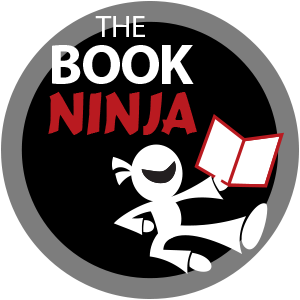One of the questions I hear the most from authors is, “When should I start promoting my book?”
The short answer is: “As soon as possible.”
The long answer is a little more complicated. Generally speaking, you can start promoting your book as soon as you know that you really, truly – I mean, really, truly – are going to write it. Once you’ve committed to making it happen, you can talk about it with colleagues, information sources, and friends.
But you know that book publicity and promotion is about more than mentioning to a friend that you’re writing a book in your free time. And you want your most meaningful promotion activities to occur when you’re far enough along in the process to know that yes, you will indeed have a book in your hands in the near future. That could mean when you’ve finished writing that first draft.
How to Get Started
Here are eight concrete things you can do to start promoting your book as soon as you’re confident that your book will be published in the next six months or so:
- Add your book title to your e-mail signature. It’s as simple as this: “Author, Book Title.”
- Compile a list of “key influencers.” Who is most influential with your book’s target audience? You’ll want them to know about the book when it’s available.
- Assess your social networks. Where is your target audience and do you have a presence there? If you do, make it stronger. If you don’t, start building it.
- Develop relationships with bloggers. Virtual book tours are a key component of an online book launch. They involve asking bloggers to share content about your book on their blogs – a guest post or Q&A, an audio or video interview, a book review, and so on. They’re easier to schedule and more successful when bloggers know who you are already.
- Create your book launch media list. You’ll send review copies and a book announcement press release to the media outlets that are most likely to review the book or schedule an interview with you.
- Create a Facebook fan page. This won’t take the place of an author or book website, but you want one because it lets you engage your audience in ways that you can’t elsewhere. Before the book is ready, solicit opinions on your book’s topic, share progress updates, ask fans to vote on cover options.
- Start building a mailing list. You’ll want to send an e-mail announcing the book, but you might also create a newsletter that lets you stay in touch regularly, too. Note that for anything other than a one-time communication, you must get permission to add someone’s address to your list.
- Learn as much as you can about book publicity and promotion. Even if you outsource the promotion, you’ll want to make sure that your publicist is using the right strategy for your book, not anyone else’s. Read a book or take a course.
Begin developing the tools you’ll need three to six months before the book is available, and you will enjoy a smooth and successful launch.

Sandra Beckwith is a former national award-winning publicist who now teaches authors how to promote and publicize their books. Get free tips and subscribe to her complimentary Build Book Buzz e-zine at http://buildbookbuzz.com.

![[Guest Expert] Sandra Beckwith: 8 Things You Can Do to Promote Your Book as Soon as You Finish the First Draft](https://thebookninja.com/wp-content/uploads/2013/02/exclamation-point-2620923.jpg)
There are so many blog posts out there that are “airy,” filled with nothing but hype and empty promises. I loved this blog posts because it lists practical adbice on what I need to do when it’s my time to promote my book. Thank you!
Thanks for this confirmation Sandra – as a primarily non-fiction expert, GoodReads sounds awesome in theory, but hasn’t jived well with my thoughts. I’ve put off checking it out more in-depth, and now I know why! 🙂
These are incredible ideas! My book is currently with my editor, so I’m searching for the best ways to promote it. So excited about the possibilities!
I’m so glad to hear that, Jennifer! Thanks for the feedback!
: )Sandy
and Podcasts! I’m so excited about podcasts ever since I did my first one and got such a HUGE reponse!
I like them too, Karen. They’re a great way to communicate your key messages, and when you’re the guest, they don’t take a lot of prep time.
Sandy
I didn’t know you were starting to Podcast! That’s awesome for your market. I’ll be launching mine in March!
Good solid advice. We are open to receiving pre-publication books or galleys to be considered for review in our magazine for librarians and booksellers. Important to remember to include your contact information–you would be surprised how many authors forget this. If we are not able to include a review of your book in our magazine (ForeWord Reviews) we offer a fee-based critique/review service. A review from a professional trade organization is important to a book’s success. What are your thoughts on GoodReads? Thanks you for putting this information out for authors, Sandra. I’m going to visit your website next.
Jennifer, GoodReads is a great resource for connecting with readers, especially when you participate with a giveaway and engage with others as another reader moreso than as an author. I always advise authors to first discover where their target audience hangs out — and then be there. If an author’s potential readers are using GoodReads, then make that part of your social media platform. But if your target audience is, say, entrepreneurs, you might skip GoodReads and focus on other tools and tactics.
Sandy
Great suggestions especially for emerging writers.
Thank you, Clyde. I appreciate the feedback.
: )
Sandy